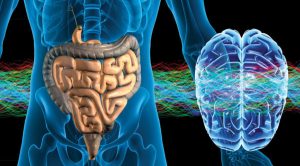Irritable bowel syndrome (IBS) affects almost 20% of Australians and New Zealanders1, and is known to cause significant distress in sufferers. Once relegated to the stigmatised tag of a psychosomatic disorder, it is now clearly recognised as having a solid physiological basis caused by a relationship between genetic susceptibility and environmental triggers.2 Just some of the established malfunctions that occur in IBS include disturbances in the intestinal microbiota, impaired mucosal barrier function and inflammation, visceral hypersensitivity, stress and dietary sensitivities. Addressing a number of these areas simultaneously can produce great clinical improvements.
Symptoms include experiencing extreme bloating, sharp abdominal pains, flatulence and diarrhoea or constipation. Many sufferers identify lactose or other food intolerances and triggers, but aren’t able to find resolution for a “less than ideal” digestion. Stress is frequently a major contributor to digestive disturbances.

A dietary approach
Temporary removal of potential dietary triggers can be achieved by following a low FODMAP diet. However, all too often, dietary changes alone are not sufficient to achieving lasting repair of bowel damage. Correct supplementation to address underlying gut barrier dysfunction, intestinal inflammation and microbiota disturbances are essential to achieving life-long resolution of IBS.
The low FODMAP diet eliminates Fermentable Oligosaccharides, Disaccharides, Monosaccharides and Polylol-containing foods which are poorly absorbed by the small intestine leading to excess fermentation. While these poorly digested elements remain in the intestines, they are osmotically active, drawing water into the gastrointestinal lumen and leading to diarrhoea. Furthermore, excessive fermentation produces gas that can initiate or worsen IBS symptoms such as abdominal pain and flatulence3. Although FODMAPs are found in many healthy foods and are generally well-tolerated by most individuals, IBS sufferers struggle to tolerate them. This is due to hypersensitivity whereby they experience a lower threshold for pain onset and a greater pain level, even in response to processes that occur as a normal part of digestion4.
In a healthy gut, there is a lot of information being gathered that is processed at an unconscious level in the central nervous system, and blocked from conscious sensation. In IBS much of the symptomatology may result from a case of information overload – a noxious combination of dysbiosis, dietary irritants and barrier dysfunction. Therefore, any treatment must remove exacerbating factors while addressing the microbiome and restoring the mucosal barrier.
The naturopathic approach removes obstacles to treatment and supports the repair process with targeted herbs and nutrients to reduce gastrointestinal inflammation and permeability. This treatment should only be undertaken under the guidance of a qualified naturopath as elimination of major food groups should only be for a limited time.
For an appointment at True Medicine call 07 5530 1863.
